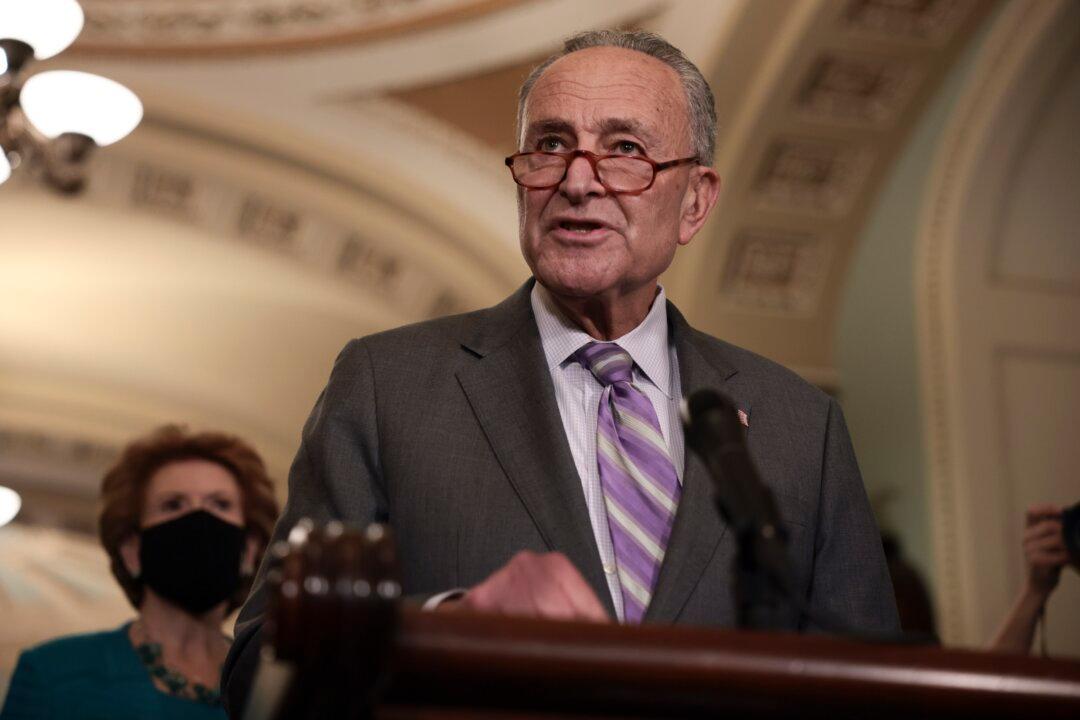Senate Majority Leader Chuck Schumer (D-N.Y.) is making a push to include provisions in the National Defense Authorization Act (NDAA) that would increase U.S. microchip production amid persistent chip shortages around the world.
Slowed business activity during the height of the CCP virus pandemic caused a backlog of demand for semiconductors, leading to shortages in industries ranging from video game consoles to automobiles.





